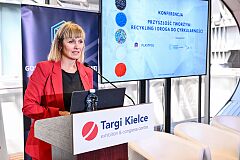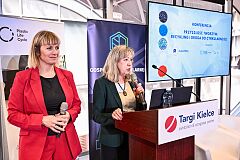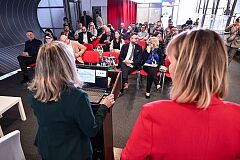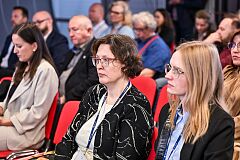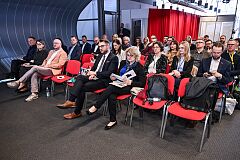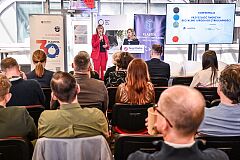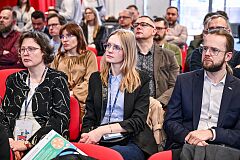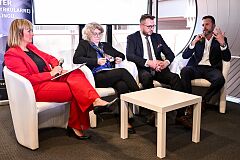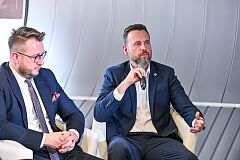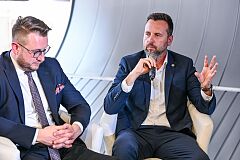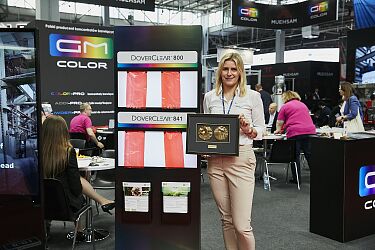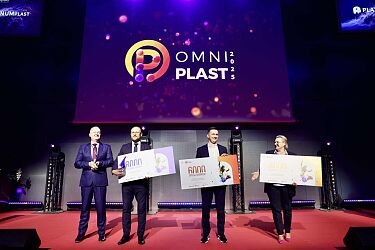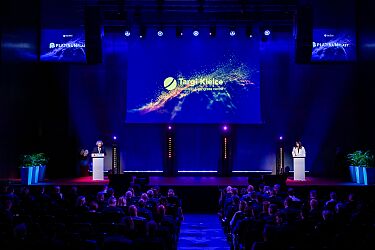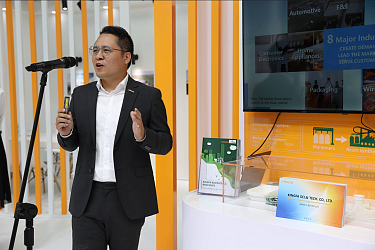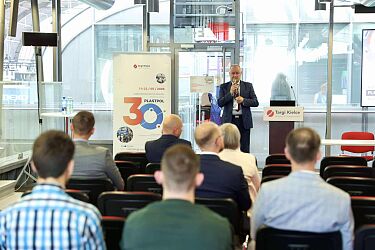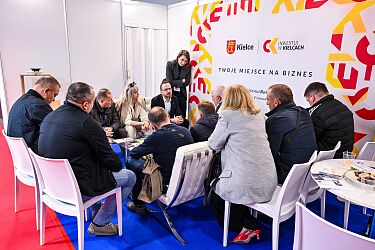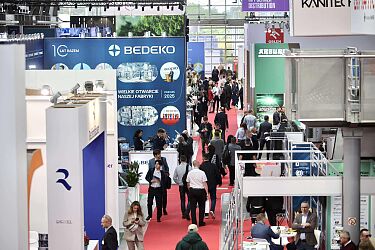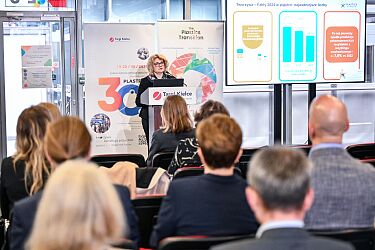News
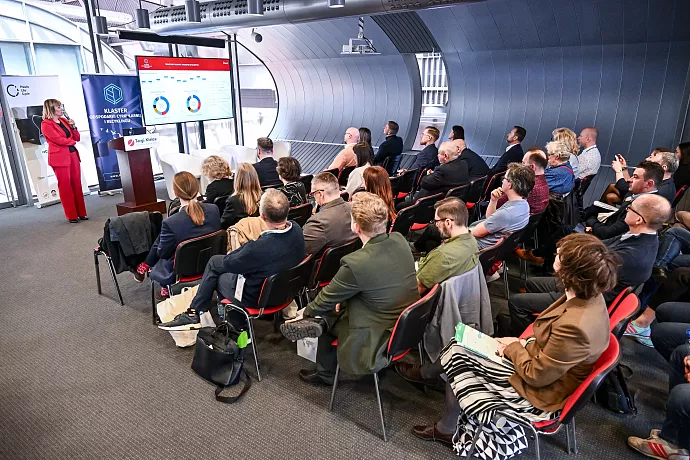
On the Future of Plastics, Recycling, and the Path to Circularity at the PLASTPOL Conference
Bożena Staniak, Vice President of the Management Board of Targi Kielce, took part in the opening of the conference titled “The Future of Plastics: Recycling and the Path to Circularity.” She welcomed the guests and emphasized the importance of both PLASTPOL and the conference for the plastics processing sector:
“Over 600 companies from 30 countries are participating in this year’s PLASTPOL, which is packed with a wide array of accompanying events. For the seventh time, we have organized this conference in cooperation with the Circular Economy and Recycling Cluster. This seminar focused on the plastics industry convinces me that it is a vital meeting for the entire sector,” said Vice President Bożena Staniak during the opening remarks.
The conference began with a presentation by Katarzyna Błachowicz, Vice President of the Management Board of the Circular Economy and Recycling Cluster. She addressed the critical question of whether the plastic recycling industry is at risk of bankruptcy. Błachowicz outlined the current state of the industry, highlighting major challenges such as insufficient waste collection, unregulated imports of plastic materials, a decline in demand for recyclates, high production costs, increasing imports of recyclates, and a lack of enforcement measures.
“The greatest challenge the industry faces is the absence of enforcement and legislative clarity, which hampers the development of recycling. The lack of reform is devastating the recycling sector—2024 has already seen a wave of recycling company bankruptcies across Europe,” stressed Vice President Katarzyna Błachowicz.
The conference also presented data illustrating the potential of plastic recycling in Europe. Despite an increase in processing capacity to 13.2 million tonnes in 2024 (a 5% rise compared to 2023), the industry experienced a 17% decline in production in 2021 and a further 10% drop in 2023. Investment levels also fell sharply, from nearly EUR 1 billion in 2022 to EUR 500 million in 2023.
“Processing capacity still falls short of demand,” Błachowicz added.
Looking forward, further investments and an increase in capacity to 16 million tonnes are essential to meet the target of producing 10 million tonnes of recyclates by 2025. Strengthening demand for recyclates is crucial for fully utilizing both existing and new infrastructure. The new PPWR regulation, which supports recyclate production, is set to come into effect in August 2026.
Measures to stimulate the recycled plastics market include the creation of quality standards for secondary plastics, encouraging certification to build industry and consumer confidence, introducing mandatory minimum recycled content in certain products, and reducing VAT on recycled goods.
An expert panel discussion on the crisis in the plastics recycling market featured industry leaders: Anna Kozera-Szałkowska from the PlasticsEurope Polska Foundation, Krzysztof Nowosielski from ML Polyolefins, and Sławomir Pacek from the Polish Recycling Association. The discussion focused on pressing issues such as the disappearance of recycling companies and the uncontrolled influx of recyclates from Asia, China, and Turkey.
“The plastics recycling industry is in crisis. A major problem is the ongoing disappearance of recycling companies—every month, a small recycler goes bankrupt. In the European Union, everything hinges on the economic situation and the authorities’ response. The current restrictive policies of the EU are problematic. Unfortunately, we are neglecting our own European market,” said Krzysztof Nowosielski from ML Polyolefins.
The crisis in the industry is closely tied to the broader economic downturn and continues to worsen.
“As a country, we are not protecting our market. We import recyclates from countries such as Asia, China, and Türkiye, which may meet some standards but lack the proper certification. This uncontrolled influx undermines family businesses across various sectors,” emphasized Sławomir Pacek of the Polish Recycling Association.
The discussion also highlighted inconsistencies in policy:
“As the European Union, we focus on environmental protection by promoting eco-packaging, yet simultaneously allow a flood of products from China,” added Pacek.
Compared to 2022, total plastic production in the EU dropped by 8.3%, falling to 54 million tonnes.
“This decline is partly due to geopolitical changes and the war in Ukraine. There is also a noticeable drop in production for other sectors. Maintaining mechanisms that protect the common market is key to reversing these negative trends,” explained Anna Kozera-Szałkowska from the PlasticsEurope Polska Foundation.
Kozera-Szałkowska further stressed the importance of swift decision-making, strengthening market surveillance, and ensuring integrated permits. She noted that some of these steps should have been taken prior to the announcement of the EU Plastics Strategy.
Waldemar Skotarek, Operations Director of Elektrorecykling Polska, spoke about designing for recycling as a fundamental element of material circularity during the conference. He shared examples of initiatives focused on designing products “from the ground up” with future recycling in mind. He stressed that only coordinated efforts among producers, designers, and recyclers can truly close the material loop.
Agnieszka Ryfa, COO at Ecopolplast, discussed the challenges of incorporating recycled materials into production. She highlighted practical barriers such as material quality, properties, and the need to adapt processing and production methods. Dr. Eng. Arkadiusz Primus, President of the Management Board of INVESTEKO, presented innovative PLC technology for sorting and recycling mixed plastics.
The highlight of the conference was the expert debate “Ecodesign for Circularity,” organized by the European Forum for Ecological Responsibility. The discussion featured Dr. Eng. Arkadiusz Primus (INVESTEKO), Agnieszka Ryfa (Ecopolplast), and Waldemar Skotarek (Elektrorecykling Polska). They explored the challenges and opportunities related to eco-designing products that are adapted to future recycling needs from the design stage onward. The panel emphasized the urgent need to introduce a legislative framework supporting this direction of development.
The conference “The Future of Plastics: Recycling and the Path to Circularity” served not only as a platform for exchanging knowledge and experiences but also as a call to action. Experts unanimously underscored the urgent need for systemic solutions to enable the further advancement of plastics circularity.

